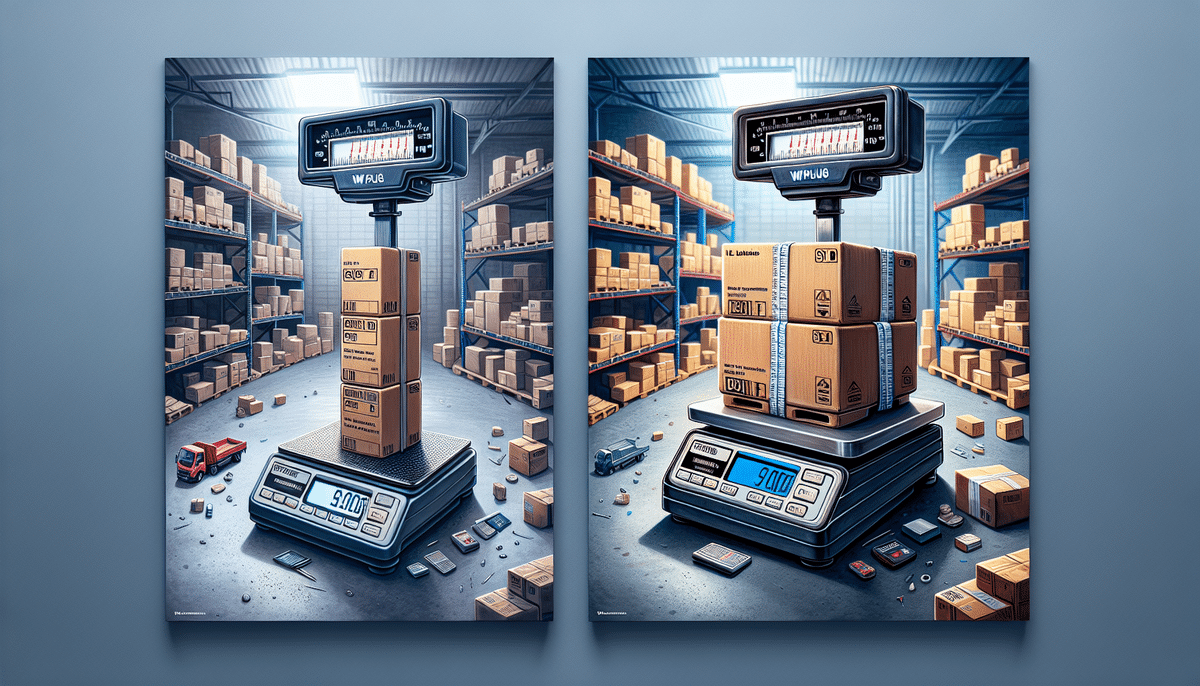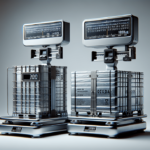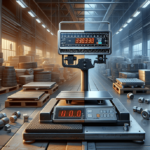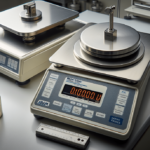CAS RW-L Series vs Adam Equipment CPWplus: An In-Depth Comparison
Choosing the right weighing scale is essential for ensuring accuracy and efficiency in your business operations. This comparison between the CAS RW-L Series and the Adam Equipment CPWplus aims to provide a comprehensive analysis of their features, specifications, accuracy, durability, capacity, user experience, and price. By examining these factors, you can make an informed decision that best suits your business needs.
Features and Specifications
CAS RW-L Series
- Capacity: 150kg
- Accuracy: 0.02kg
- Platform: Stainless steel, easy to clean
- Display: Large LCD with multiple unit options (kg, lbs, oz)
- Battery Life: Up to 150 hours of continuous use
- Additional Features: Overload protection, lockable wheels, preset tare function, compact design
The CAS RW-L Series is engineered for versatility across various industries. Its stainless steel platform is not only durable but also hygienic, making it ideal for food processing and pharmaceutical applications. The rechargeable battery ensures continuous operation, while the temperature compensation feature maintains precision in fluctuating environments.
Adam Equipment CPWplus
- Capacity: 200kg
- Accuracy: 0.05kg
- Platform: Large stainless steel for oversized items
- Display: Backlit for easy reading in low light
- Battery Life: Up to 90 hours of continuous use
- Additional Features: Dynamic weighing for moving objects, wall-mountable display, RS-232 interface for data transfer, programmable auto-off, built-in overload protection
The Adam Equipment CPWplus is built to handle heavier and larger items, making it suitable for industrial settings such as manufacturing plants and veterinary clinics. Its dynamic weighing function allows for accurate measurements of moving objects, enhancing operational efficiency. The RS-232 interface enables seamless data integration with existing computer systems.
Performance Comparison
Accuracy
Accuracy is paramount in weighing scales, impacting the reliability of measurements. The CAS RW-L Series offers an impressive accuracy of 0.02kg, making it ideal for applications requiring high precision, such as pharmaceutical dosing or fine ingredient measurements. In contrast, the Adam Equipment CPWplus has an accuracy of 0.05kg, which is suitable for larger items where slight variations are less critical.
Environmental factors like temperature and humidity can influence accuracy. The CAS RW-L Series incorporates a temperature compensation feature, ensuring consistent readings in variable conditions. While the CPWplus is highly accurate, it does not include this feature, which may affect precision in environments with fluctuating temperatures.
Durability
In industrial and commercial settings, durability ensures longevity and reduces maintenance costs. The CAS RW-L Series features a stainless steel platform with an IP68 rating, making it dust-tight and capable of withstanding prolonged exposure to water. This makes it suitable for industries where hygiene and resistance to harsh conditions are crucial.
The Adam Equipment CPWplus also boasts a robust stainless steel platform with an IP66 rating, protecting it against powerful water jets and dust ingress. Its construction is praised for enduring heavy use, although it is slightly less resistant to water ingress compared to the CAS RW-L Series.
Capacity
Capacity determines the range of items the scale can handle. The Adam Equipment CPWplus supports up to 200kg, making it ideal for heavy-duty applications such as industrial equipment weighing and large package handling. Meanwhile, the CAS RW-L Series has a capacity of 150kg, which is adequate for smaller to moderately sized items but may not accommodate very large weights.
Despite the lower capacity, the CAS RW-L Series offers higher precision at its capacity limit, with a readability of 0.02kg compared to the CPWplus’ 0.05kg. This makes it preferable for detailed measurements where accuracy is essential.
User Experience
User experience encompasses ease of use, display clarity, and overall functionality. The CAS RW-L Series is appreciated for its intuitive LCD display and adjustable feet, which facilitate stable placement on uneven surfaces. Its compact design also makes it suitable for workspaces with limited space.
The Adam Equipment CPWplus features a backlit display that enhances visibility in low-light conditions, and its large platform accommodates bigger items effortlessly. Additionally, the RS-232 interface allows for easy data transfer, streamlining workflow in busy environments. Users have noted the CPWplus for its robust construction and reliability in demanding settings.
Price
Budget considerations are crucial when selecting equipment. The CAS RW-L Series is generally more affordable, offering high accuracy and essential features at a lower cost. This makes it an attractive option for businesses with budget constraints or those requiring precise measurements without extensive additional features.
Conversely, the Adam Equipment CPWplus is priced higher due to its increased capacity and advanced features like dynamic weighing and data transfer capabilities. While it represents a more significant investment, the enhanced functionality and durability may justify the cost for businesses that require these specialized features.
Pros and Cons
- CAS RW-L Series
- Pros:
- Affordable price
- High accuracy (0.02kg)
- Long battery life (150 hours)
- Compact and space-efficient
- Durable stainless steel platform
- Temperature compensation for consistent accuracy
- Cons:
- Lower capacity (150kg)
- Limited advanced features
- No dynamic weighing function
- Pros:
- Adam Equipment CPWplus
- Pros:
- Higher capacity (200kg)
- Dynamic weighing function for moving objects
- Backlit display for better visibility in low light
- RS-232 interface for data transfer
- Robust and durable construction with IP66 rating
- Programmable auto-off to conserve battery
- Cons:
- Higher price point
- Shorter battery life (90 hours)
- Less precise for smaller weight measurements
- Pros:
Which Weighing Scale Is Best for Your Business?
Selecting between the CAS RW-L Series and the Adam Equipment CPWplus depends on your specific business requirements. Consider the following scenarios to determine the most suitable option:
- Choose the CAS RW-L Series if:
- You require high accuracy for smaller items.
- Budget constraints are a significant factor.
- Space is limited in your workspace.
- Your operations benefit from a longer battery life.
- Your business operates in environments with fluctuating temperatures.
- Choose the Adam Equipment CPWplus if:
- You need to weigh larger and heavier items.
- Advanced features like dynamic weighing and data transfer are essential.
- Your environment demands robust and durable equipment.
- You require better visibility in low-light conditions.
- Your business relies on integrating weighing data with computer systems.
For specialized needs, consider scales with high IP ratings. For example, the Ohaus Defender 3000 offers an IP67-rated housing, protecting against water and dust, along with a rechargeable battery and a bright backlit display.
Conclusion: Which Weighing Scale Should You Choose?
Both the CAS RW-L Series and the Adam Equipment CPWplus are high-quality weighing scales that cater to different business needs. Your decision should be based on evaluating the following factors:
- CAS RW-L Series: Best for businesses needing affordability, high precision for smaller items, extended battery life, and operation in variable environmental conditions.
- Adam Equipment CPWplus: Ideal for businesses that require high capacity, advanced features like dynamic weighing and data transfer, and durable construction for heavy-duty use.
Ultimately, selecting the right weighing scale is essential for ensuring accurate measurements and enhancing operational efficiency. Assess your business's environment, capacity needs, accuracy requirements, and budget constraints to make the best choice for your operations.






















